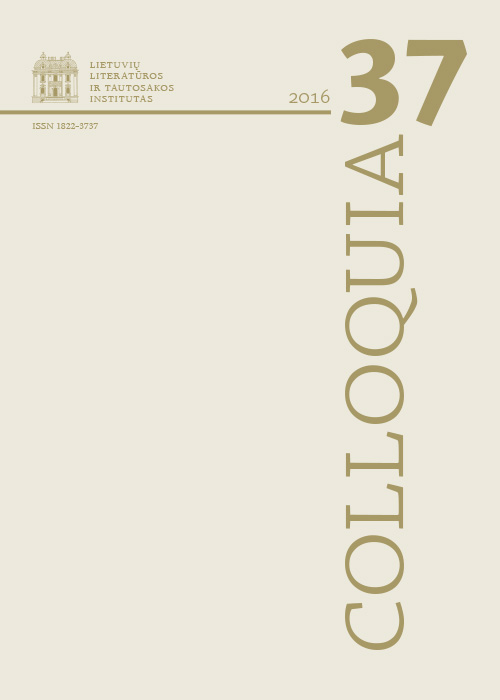30-ųjų metų kartos konformizmas ir iliuzijos
Santrauka
Straipsnyje, remiantis memuarais, archyvine medžiaga, spausdintais tekstais, analizuojama 30-ųjų metų poetų kartos (Algimantas Baltakis, Alfonsas Maldonis, Justinas Marcinkevičius) situacija ir kūryba nuo jos kūrybos pradžios iki 1968 m. Šie poetai sąmoningai rinkosi gyvenimą ir darbą sovietinėje visuomenėje, o ne kovą su sistema, kurios esmę jie jau buvo suvokę ir kurios bijojo. Archyviniai tekstai liudija, kad tikėjimo sovietiniais gyvenimo pakeitimais nebuvo, jie sveikinti tik publikuotuose eilėraščiuose. Konformizmo ženklų poezijoje mažėjo vadinamojo „atlydžio“ laikais silpstant ideologiniam spaudimui. Tada, be kita ko, tarsi prisimenant XIX a. pabaigos tautinio atgimimo metus, rašyta apie pavasarį, kuris reiškė pokyčius ne tik gamtoje, bet ir visuomenėje, kalbėta apie mažėjančią baimę, šaipytasi iš dogmatikų. Tačiau, kaip ir didžioji sovietinės visuomenės dalis, minėti poetai nemanė, kad galimas esminis santvarkos pasikeitimas, viltingai žvelgta į Čekoslovakijos bandymus bent reformuoti socializmą, suteikti jam „žmogišką veidą“. Todėl ir poezijoje kurtas Lenino, kaip idealaus, humaniško lyderio, paveikslas. Iliuzijos žlugo 1968 m., jų žlugimas taip pat užfiksuotas poezijoje.
Atsisiuntimai
Skaitomiausi šio autoriaus(ų) straipsniai
- Donata Mitaitė, Su meile ir ilgesiu parašyti atsiminimai , Colloquia: T 51 (2023): Colloquia
- Gintarė Bernotienė, Renaldas Gudauskas, Vytautas Landsbergis, Rasa Juknevičienė, Andrius Kubilius, Emanuelis Zingeris, Donata Mitaitė, Vytautas Ališauskas, Laurynas Peluritis, „Ar aš galiu dar suspėti ką nors padaryti?“: Vytautas Kubilius ir intelektinis bei kritinis mąstymas kuriant valstybę , Colloquia: T 52 (2023): Colloquia
- Donata Mitaitė, Tomo Venclovos eilėraštis kaip atminties vieta , Colloquia: T 42 (2019)
- Donata Mitaitė, Meteoro nušviesti , Colloquia: T 36 (2016)
- Donata Mitaitė, Kas atrandama kasinėjant , Colloquia: T 33 (2014)
- Donata Mitaitė, Istorikas apie poeziją , Colloquia: T 40 (2018)
